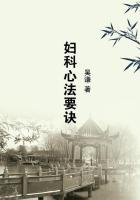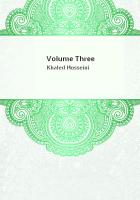THE ocean beach of Apemama was our daily resort.The coast is broken by shallow bays.The reef is detached,elevated,and includes a lagoon about knee-deep,the unrestful spending-basin of the surf.The beach is now of fine sand,now of broken coral.The trend of the coast being convex,scarce a quarter of a mile of it is to be seen at once;the land being so low,the horizon appears within a stone-cast;and the narrow prospect enhances the sense of privacy.Man avoids the place -even his footprints are uncommon;but a great number of birds hover and pipe there fishing,and leave crooked tracks upon the sand.Apart from these,the only sound (and I was going to say the only society),is that of the breakers on the reef.
On each projection of the coast,the bank of coral clinkers immediately above the beach has been levelled,and a pillar built,perhaps breast-high.These are not sepulchral;all the dead being buried on the inhabited side of the island,close to men's houses,and (what is worse)to their wells.I was told they were to protect the isle against inroads from the sea -divine or diabolical martellos,probably sacred to Taburik,God of Thunder.
The bay immediately opposite Equator Town,which we called Fu Bay,in honour of our cook,was thus fortified on either horn.It was well sheltered by the reef,the enclosed water clear and tranquil,the enclosing beach curved like a horseshoe,and both steep and broad.The path debouched about the midst of the re-entrant angle,the woods stopping some distance inland.In front,between the fringe of the wood and the crown of the beach,there had been designed a regular figure,like the court for some new variety of tennis,with borders of round stones imbedded,and pointed at the angles with low posts,likewise of stone.This was the king's Pray Place.When he prayed,what he prayed for,and to whom he addressed his supplications I could never learn.The ground was tapu.
In the angle,by the mouth of the path,stood a deserted maniap'.
Near by there had been a house before our coming,which was now transported and figured for the moment in Equator Town.It had been,and it would be again when we departed,the residence of the guardian and wizard of the spot -Tamaiti.Here,in this lone place,within sound of the sea,he had his dwelling and uncanny duties.I cannot call to mind another case of a man living on the ocean side of any open atoll;and Tamaiti must have had strong nerves,the greater confidence in his own spells,or,what Ibelieve to be the truth,an enviable scepticism.Whether Tamaiti had any guardianship of the Pray Place I never heard.But his own particular chapel stood farther back in the fringe of the wood.It was a tree of respectable growth.Around it there was drawn a circle of stones like those that enclosed the Pray Place;in front,facing towards the sea,a stone of a much greater size,and somewhat hollowed,like a piscina,stood close against the trunk;in front of that again a conical pile of gravel.In the hollow of what I have called the piscina (though it proved to be a magic seat)lay an offering of green cocoa-nuts;and when you looked up you found the boughs of the tree to be laden with strange fruit:palm-branches elaborately plaited,and beautiful models of canoes,finished and rigged to the least detail.The whole had the appearance of a mid-summer and sylvan Christmas-tree AL FRESCO.
Yet we were already well enough acquainted in the Gilberts to recognise it,at the first sight,for a piece of wizardry,or,as they say in the group,of Devil-work.
The plaited palms were what we recognised.We had seen them before on Apaiang,the most christianised of all these islands;where excellent Mr.Bingham lived and laboured and has left golden memories;whence all the education in the northern Gilberts traces its descent;and where we were boarded by little native Sunday-school misses in clean frocks,with demure faces,and singing hymns as to the manner born.
Our experience of Devil-work at Apaiang had been as follows:-It chanced we were benighted at the house of Captain Tierney.My wife and I lodged with a Chinaman some half a mile away;and thither Captain Reid and a native boy escorted us by torch-light.On the way the torch went out,and we took shelter in a small and lonely Christian chapel to rekindle it.Stuck in the rafters of the chapel was a branch of knotted palm.'What is that?'I asked.'O,that's Devil-work,'said the Captain.'And what is Devil-work?'Iinquired.'If you like,I'll show you some when we get to Johnnie's,'he replied.'Johnnie's'was a quaint little house upon the crest of the beach,raised some three feet on posts,approached by stairs;part walled,part trellised.Trophies of advertisement-photographs were hung up within for decoration.There was a table and a recess-bed,in which Mrs.Stevenson slept;while I camped on the matted floor with Johnnie,Mrs.Johnnie,her sister,and the devil's own regiment of cockroaches.Hither was summoned an old witch,who looked the part to horror.The lamp was set on the floor;the crone squatted on the threshold,a green palm-branch in her hand,the light striking full on her aged features and picking out behind her,from the black night,timorous faces of spectators.
Our sorceress began with a chanted incantation;it was in the old tongue,for which I had no interpreter;but ever and again there ran among the crowd outside that laugh which every traveller in the islands learns so soon to recognise,-the laugh of terror.















